Featured 2

Photo: AP/UNB
People who escaped the armed conflict in Sudan reflect on their experiences and desire to return home
It's been four months since Sudan descended into chaos when the rivalry between the Sudan Armed Forces (SAF) and paramilitary group Rapid Support Forces (RSF) escalated into a clash that has led to civilian deaths, the displacement of millions of people and the destruction of infrastructure in Khartoum and other nearby cities.
This comes after the SAF, captained by General Abdel Fattah al-Burhan, seized the reins of power when he overthrew the transitional government in a coup in October 2021 with the help of the RSF commander, General Mohamed Hamdan Dagalo.
Like thousands of Khartoum residents, Haneen El and her family were forced out of their home in the city's Riyadh neighbourhood in April, when heavy artillery descended on the capital as the warring factions exchanged fire. They found themselves fleeing the city in search of safety.
Born and raised in Omdurman, Sudan's second city, El lived in Khartoum for over 20 years. She worked as a substitute teacher and volunteered at a dental clinic twice a week. After a week of work, she would go to visit her grandmother every Friday and then go out with friends at the weekend as the streets of Riyadh bustled with life.
"Riyadh was very busy, with a lot of life and movement," El recalled. "The streets were filled with restaurants, fast food trucks, shops and corner stores. People were always out and about."
When the war broke out, El said they expected it to last a week. People barricaded themselves in their homes in anticipation of a ceasefire. But the ceasefire never came. At least not a permanent one. Her hopes were dashed when jets loomed overhead and the streets near their home were targeted by shelling.
The situation was becoming increasingly dangerous, and El and her family knew they had to seek safety elsewhere. They took what essentials they could carry and left Khartoum on 29 April, during the first temporary ceasefire.
"We packed our passports, toiletries and a change of clothes. My brother managed to grab his laptop. We were in a state of panic because we didn't know if we would finally go through with leaving," she told openDemocracy while still in Sudan.
Her family had discussed leaving town a few times, but this time they had no choice but to take action. El said they "locked up the house, got in the car and made a run for it". They had only one thing in mind: survival. "We were focused on getting from point A to B all together and alive."
The journey, she said, was horrific. They were all on edge and to avoid danger they had to take a circuitous route to their initial destination on the outskirts of Khartoum. El and her family have since left the country, arriving in Cairo, Egypt, on 7 June.
El looks back on her former life with appreciation and longing. It was, she says, perfect. But the war has robbed her, her family and friends of safety and normality and thrown their lives into turmoil.
"Almost everyone I know is now either on the outskirts of Khartoum or out of the country. The only thing harder than staying was leaving, and it has been tougher on the older generation. It's heartbreaking for them to make that decision," she said.
While she hasn't lost any of her loved ones in the violence, El knows people whose lives were lost in the bloodshed in Khartoum.
Her mental health has not been left unscathed by the war and she is still trying to process the changes happening around her, having been forced to uproot her life and start afresh.
The former teacher was trying to find work in Cairo, but has since travelled to Sweden, where she hopes to study for a Master's degree. She doesn't know what became of her home since they left the city.
"We occasionally got updates from the employees who worked at a supermarket across from our house," she explained. "But since the situation escalated, everyone had to leave and we don't know what's happened to our house."
The neighbourhood WhatsApp group her mother belongs to has also been quiet for some time - everyone has gone.
'God saved me twice'
At the beginning of August, it was reported that almost a million people had fled Sudan into neighbouring countries - such as Egypt, South Sudan, Chad, Ethiopia and Libya - while around two million more had been internally displaced.
The majority (71%) of those who have left their homes are reported to be from Khartoum, and pillaging and forceful "occupation of and attacks on public institutions and private residences" continue in the city, according to the United Nations' International Organisation for Migration (IOM).
Visual artist Galal Yousif also fled Khartoum when the war broke out. His neighbourhood in Al Halfaya (north Khartoum) was seized by the RSF militia, who kicked people out of their homes and occupied them. His house was taken, too.
After a stop in his birth city, Rufaa, in Al Jazirah state in east central Sudan, Yousif tried to travel to Kenya. "The war forced me to leave my home and Kenya was my choice because I had been here before," he explained. "I already had connections and some of my work is in art galleries here."
On 1 June, Yousif boarded a bus from Sudan to Gondar, in northern Ethiopia, where he planned to fly to Addis Ababa, Ethiopia's capital, and then catch another flight to Nairobi - but he contracted malaria at the Sudan-Ethiopia border and missed his initial flight to Addis Ababa. Though he eventually made it to the capital, he was very weak and sick by the time he arrived, and was rushed to the hospital by some friends when his condition worsened still.
"I was in the hospital for seven days," he told openDemocracy. "I really thought I was going to die in Ethiopia. I feel like God saved me twice - once from the war and once from malaria."
He missed his flight to Kenya while in the hospital but eventually arrived in the country on 13 June. Still, though, Yousif wishes he had not had to leave Khartoum. He had already had several chances to do so before the war but had wanted "to stay and build a life" in his home country.
"Life was normal," he said. "Yes, people were struggling due to economic issues and the political situation wasn't ideal after the coup in 2021, but it wasn't this bad. People were still protesting to demand a civilian government and democracy, but there was a semblance of peace."
The 2021 coup sparked protests in Khartoum and the military was accused of firing at demonstrators, killing and injuring many of them. Yousif lost his art studio and some of his work, made over many years, in the war that continues to devastate the city.
Some of his friends are stuck in the war-torn city, and two were arrested by the military and RSF. Although one is now free, the other - a graphic designer who had returned to Khartoum to get his laptop so he could work outside the city - remains in the custody of Sudan's national army.
Another of Yousif's friends was beaten and dumped in the street by the armed forces, who cut off his dreadlocks, which are associated with the movement fighting for democracy. "I used to have long dreadlocks but I decided to cut them off to avoid putting my family in danger," Yousif explained.
Yousif's family stayed behind in Rufaa, and Yousif hopes peace will prevail so he can go back home to Khartoum. This desire is shared by El; while she appreciates the safety and quietness of her new home in Sweden, she hopes for "security, safety, freedom and a prosperous near future for Sudan". She wants to return home and rebuild her life.
"I understand that would mean starting over but, nothing compares to feeling secure and safe in your own country. I don't take it for granted," she said.
From openDemocracy






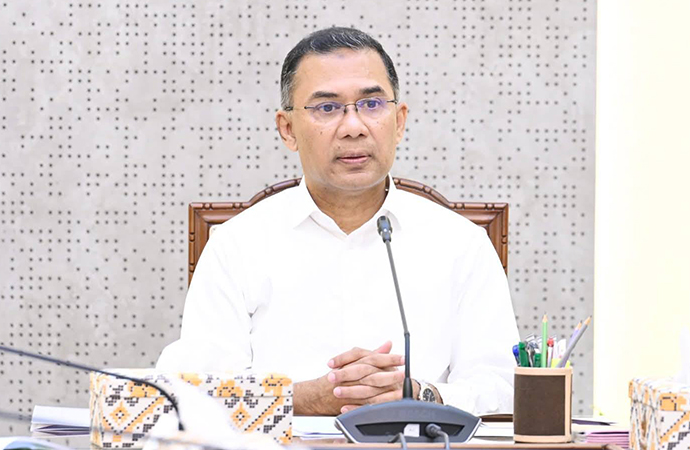
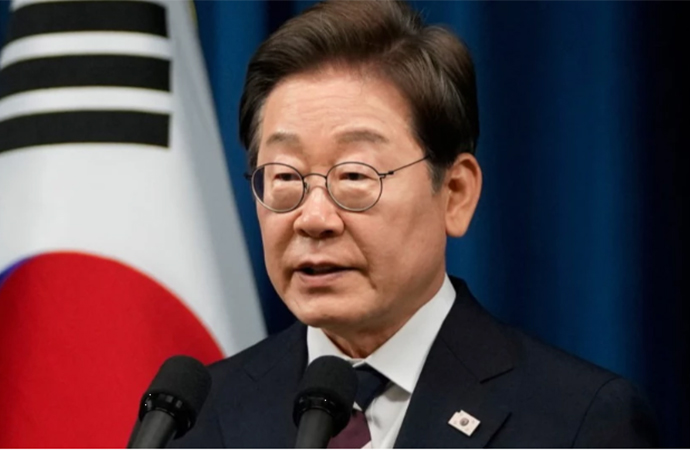
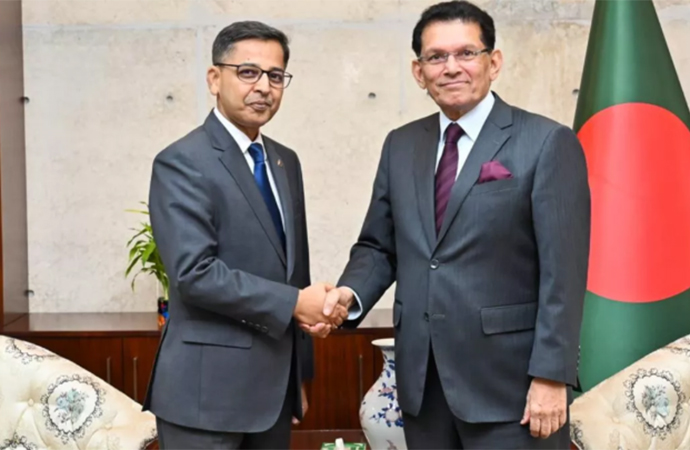
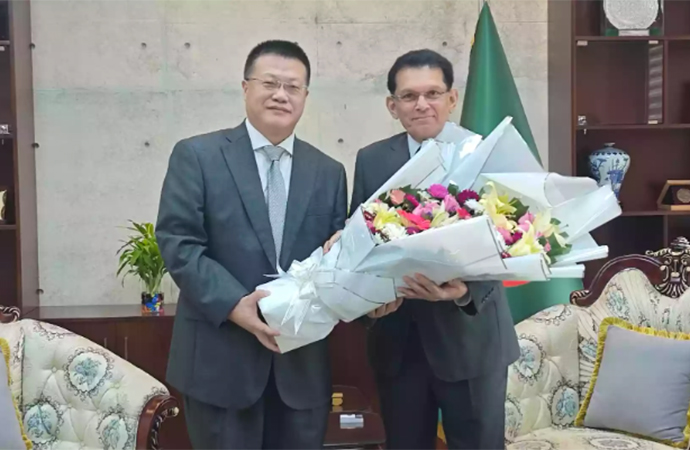
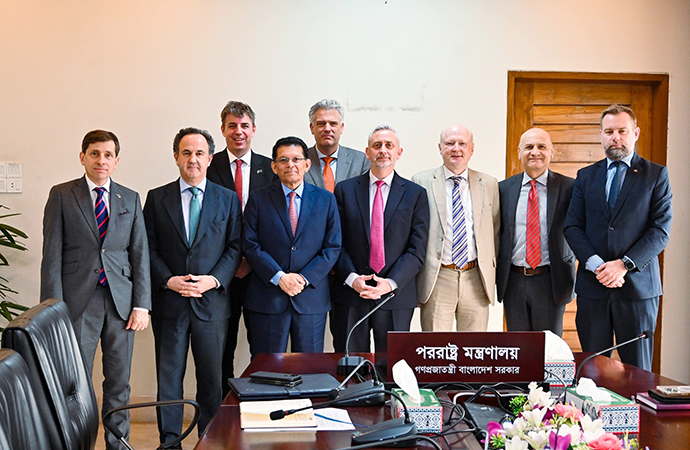
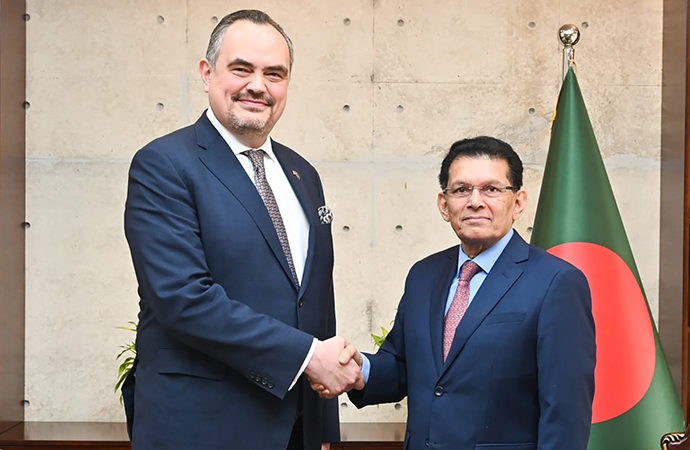













Leave a Comment
Recent Posts
Bangladesh’s first drought-res ...
In a groundbreaking development for Bangladesh’s agriculture, Ga ...
US and Iran hold another round ...
Iran and the United States were holding another round of indirect talk ...
An early hiccup for the new government?
Japan invites PM Tarique, eyes cooperation with Bang ..
Bangladesh to achieve sustained growth, prosperity u ..
Dhaka indicates ‘forward looking, balanced partnersh ..